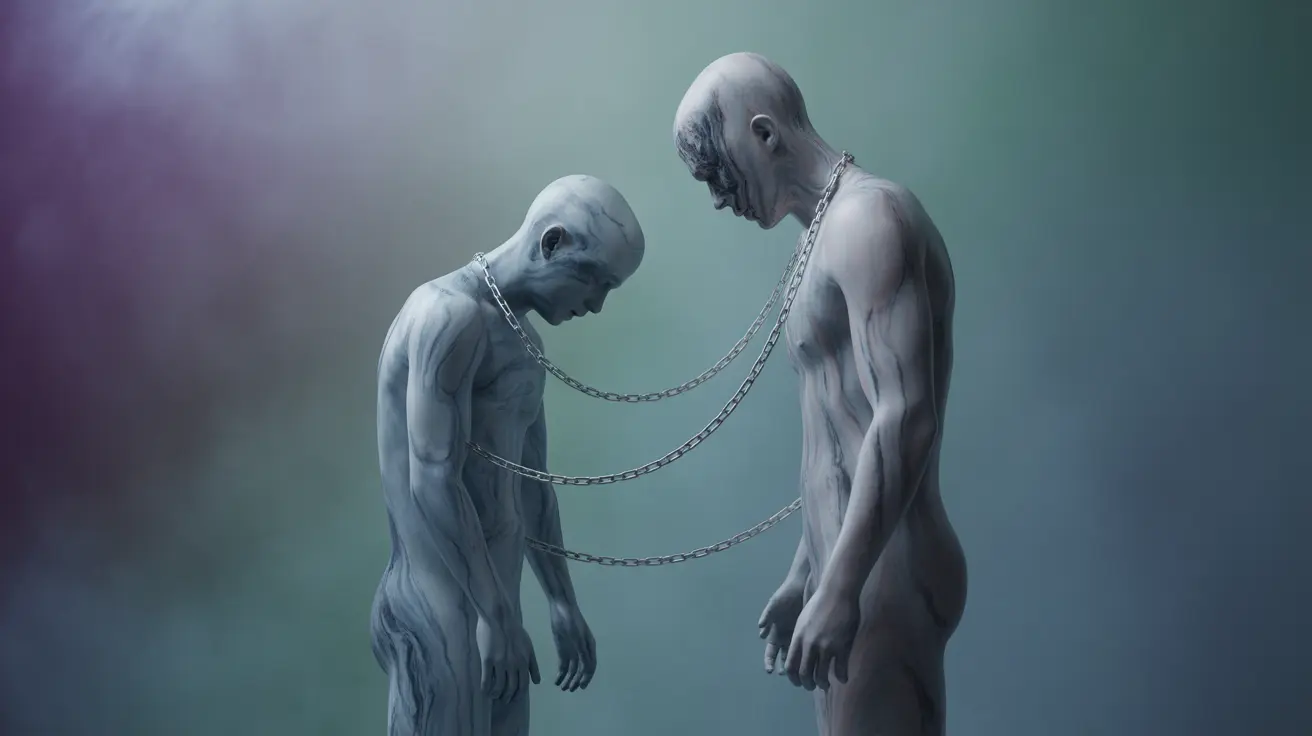Cluster C personality disorders represent a group of mental health conditions characterized by anxious and fearful behavior patterns. These disorders, which include avoidant, dependent, and obsessive-compulsive personality disorders, can significantly impact a person's daily life, relationships, and overall well-being. Understanding these conditions is crucial for recognizing symptoms and seeking appropriate treatment.
In this comprehensive guide, we'll explore the key characteristics of Cluster C disorders, their differences from other mental health conditions, and effective treatment approaches that can help manage symptoms and improve quality of life.
Types of Cluster C Personality Disorders
There are three distinct types of Cluster C personality disorders, each with unique characteristics:
Avoidant Personality Disorder
People with avoidant personality disorder experience intense feelings of inadequacy and fear of rejection. They often:
- Avoid social situations and professional opportunities
- Have extreme sensitivity to criticism
- Feel socially inept and inferior to others
- Struggle to form close relationships
- Experience persistent feelings of shame
Dependent Personality Disorder
This disorder is characterized by an overwhelming need to be taken care of, leading to:
- Difficulty making daily decisions without excessive advice
- Strong fear of abandonment
- Trouble expressing disagreement with others
- Difficulty initiating projects or working independently
- Urgent need to find new relationships when one ends
Obsessive-Compulsive Personality Disorder
Different from OCD, this personality disorder involves:
- Excessive preoccupation with order, rules, and control
- Perfectionism that interferes with task completion
- Inflexibility about morality and values
- Difficulty delegating tasks or working with others
- Rigid adherence to schedules and organization
Treatment Approaches and Management
Treatment for Cluster C personality disorders typically involves a combination of approaches:
Psychotherapy
Various forms of therapy can be beneficial, including:
- Cognitive Behavioral Therapy (CBT)
- Schema Therapy
- Psychodynamic Therapy
- Group Therapy
- Dialectical Behavior Therapy (DBT)
Medication
While no medications specifically treat personality disorders, certain medications may help manage associated symptoms:
- Anti-anxiety medications
- Antidepressants
- Anti-stress medications
- Mood stabilizers
Living with Cluster C Personality Disorders
Managing these conditions requires ongoing effort and support. Key strategies include:
- Maintaining regular therapy appointments
- Building a strong support network
- Practicing social skills in safe environments
- Developing healthy coping mechanisms
- Setting realistic goals and expectations
Frequently Asked Questions
What are the common symptoms and signs of Cluster C personality disorders?
Common symptoms include excessive fear and anxiety, avoidance of social situations, dependence on others for decision-making, and perfectionist tendencies. Each specific disorder within Cluster C has its unique pattern of symptoms, but all share underlying themes of anxiety and fearfulness.
How is avoidant personality disorder different from social anxiety disorder?
While both conditions involve fear of social situations, avoidant personality disorder is more pervasive and affects a person's entire personality structure. Social anxiety disorder typically focuses on specific social situations, while avoidant personality disorder impacts all areas of life and includes deep-seated feelings of inadequacy and fear of rejection.
What treatment options are available for managing Cluster C personality disorders?
Treatment typically includes psychotherapy (such as CBT, schema therapy, or psychodynamic therapy), possible medication for specific symptoms, and social skills training. A comprehensive treatment plan is often tailored to the individual's specific needs and circumstances.
Can therapy help with the fear and anxiety experienced in dependent personality disorder?
Yes, therapy can be highly effective in helping individuals with dependent personality disorder develop greater independence, build self-confidence, and learn healthy decision-making skills. Cognitive behavioral therapy and assertiveness training are particularly helpful approaches.
How does obsessive-compulsive personality disorder affect daily life and relationships?
Obsessive-compulsive personality disorder can significantly impact daily life through rigid perfectionism, difficulty delegating tasks, and inflexible thinking patterns. These traits often strain relationships, affect work performance, and create significant stress in maintaining daily routines and interactions with others.




